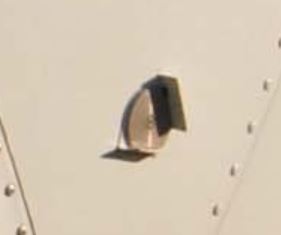Airbus AS350 helicopters and Bell 206 helicopters have a 1/2" long fence behind the static port. CRJ 200/700 have a .060" step on the aft side of the static port. What would be the reason for these?
-
$\begingroup$ A clue, from a builders' forum: "The static port can be tuned in situ. RV [builders] bond washers of varying thickness to get the desired calibration. This action mimics the more sophisticated milled "step" seen on some factory aircraft." $\endgroup$– Camille GoudeseuneCommented Jun 25, 2020 at 17:05
-
2$\begingroup$ Do you have a photograph to illustrate your question? I found this image of a Bell 214 static port system which might suffice, although I'm not sure exactly what you're getting at. $\endgroup$– CatchAsCatchCanCommented Jun 25, 2020 at 23:12
-
$\begingroup$ Agree with @CatchAsCatchCan - image would be helpful. $\endgroup$– nodapicCommented Jun 30, 2020 at 18:39
1 Answer
In yet another example of unique helicopter design complexity, issues can arise when it comes to mounting static ports on the side of the fuselage where they may fall within the rotor wash. Ideally, static ports should be mounted in an area of undisturbed air, but other design considerations sometimes make this impossible. Additionally, helicopters can fly in directions other than forward, including in the direction of the static port itself. To counter pressure differences from sideslip, many helicopters use a second port on the opposite side. To adjust for rotor wash interference and ensure that the instruments read correctly in climbs and descents, small structures may be placed around static ports to speed up air flow with convex surfaces or slow them down with dams (what you refer to as fences or steps).
Although there is no picture provided, I think this may be what you are asking about:
For more information, you may look here:

